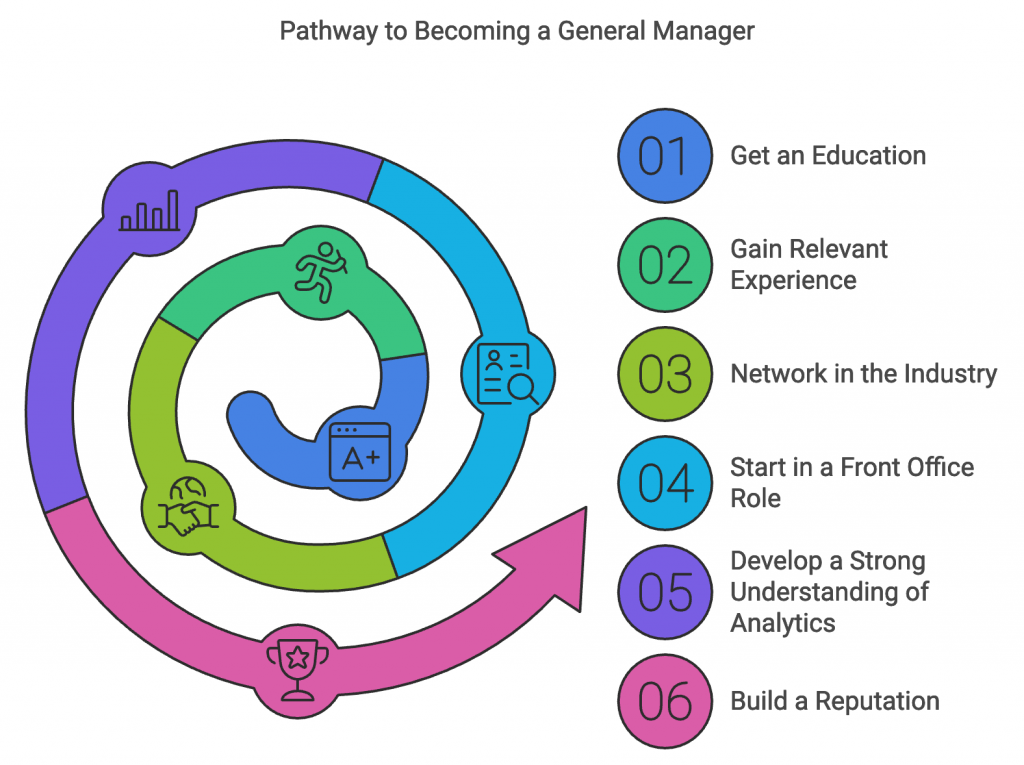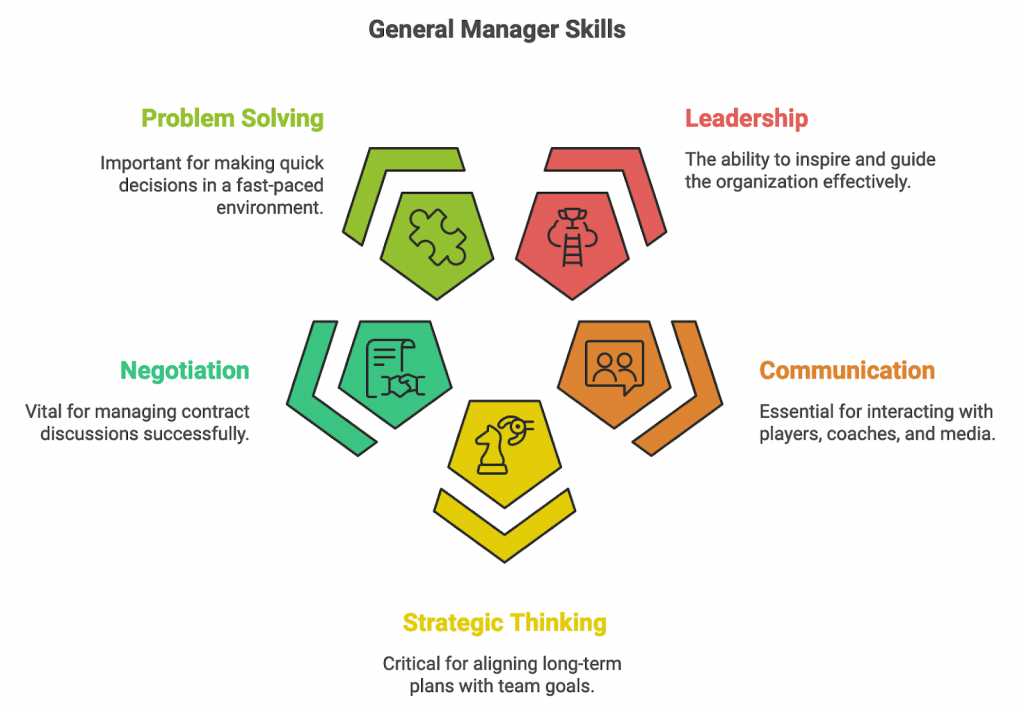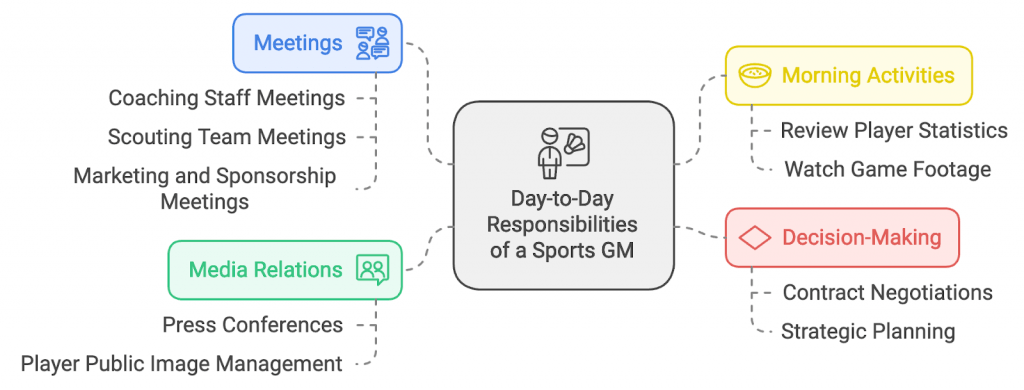How to Become a General Manager of a Sports Team
Dreaming of a career where you call the shots for your favorite sports team? Becoming a sports team’s General Manager (GM) could be your ticket to the big leagues! The role of a GM is not only prestigious but also comes with a unique set of challenges and responsibilities. In this article, we’ll explore the steps to becoming a successful GM, the skills required, and some real-life examples of GMs who have significantly impacted the sports world.
Understanding the Role of a General Manager
Before we dive into the how-tos, let’s uncover what a General Manager does. The GM oversees all aspects of a sports team, including player acquisitions, contracts, scouting, and sometimes even the hiring of coaches. They are the team’s architects, shaping its roster and strategic direction.
For instance, Sam Presti, the Oklahoma City Thunder General Manager, is known for his exceptional scouting and drafting skills, particularly during the team’s early success with players like Kevin Durant, Russell Westbrook, and James Harden. Presti’s ability to build a competitive team from the ground up is a hallmark of a successful GM.
Steps to Becoming a General Manager
1. Get an Education
While no specific degree guarantees you a GM position, a background in sports management, business administration, or a related field can give you a competitive edge. Courses in finance, marketing, and law will help you understand the business side of sports.
2. Gain Relevant Experience
Start building your experience in the sports industry through internships or entry-level positions. Search for opportunities within sports teams, whether as a coordinator in player development, analytics, or even as a scout. The more hands-on experience you get, the better.
3. Network in the Industry
Networking is crucial in the sports world. Attend industry conferences, seminars, and networking events to connect with professionals in the field. Building relationships with coaches, scouts, and other front office personnel can open doors to opportunities.
4. Start in a Front Office Role
Once you have experience, aim for positions within the team’s front office. Roles such as assistant GM, director of player personnel, or even analytics positions are great stepping stones. These roles will give you insight into the decision-making processes and the operations behind the scenes.
5. Develop a Strong Understanding of Analytics
Today’s sports teams increasingly rely on data and analytics to make decisions. Familiarize yourself with sports analytics software and develop your analytical skills. Understanding how to interpret and use data in decision-making will set you apart from other candidates.
6. Build a Reputation
As you progress in your career, focus on building a reputation as someone who can evaluate talent and make sound decisions. This reputation will be crucial when you seek a GM position.

Skills Required to Be a General Manager
- Leadership: A GM must be able to lead and inspire the entire organization, from coaches to players to staff.
- Communication: It is vital to effectively communicate with various stakeholders, including players, coaches, and the media.
- Strategic Thinking: GMs must be able to think critically and make long-term plans that align with the team’s goals.
- Negotiation: Contract negotiations are a significant part of the role, and strong negotiation skills are essential.
- Problem-Solving: The ability to make quick decisions under pressure and solve problems as they arise is crucial in the fast-paced sports environment.

The Day-to-Day Responsibilities
So, what does a typical day look like for a General Manager of a sports team? Well, buckle up because it’s a wild ride! A GM’s day involves meetings, strategic planning, and decision-making.
Imagine starting your day with a cup of coffee while reviewing player statistics and game footage. You’ll likely follow this up with a meeting with the coaching staff to discuss game strategies, player performance, and any immediate needs for the team.
Next up, you might have a meeting with your scouting team. This is where the fun begins – scouting for new talent is essential to the job! You’ll review reports on potential draftees or players available for trade. It’s all about finding that hidden gem who can take your team to the next level!

Throughout the day, you’ll also be negotiating contracts. Whether it’s a renewal for a star player or a deal for a rookie, these conversations are vital to building a successful roster. And don’t forget about the business side of things! GMs often meet with marketing and sponsorship teams to ensure everything is running smoothly off the field. And if that wasn’t enough, you’re also the go-to person for media inquiries. You might need to give a press conference or handle a situation with a player’s public image.
Success Stories of Notable General Managers
Let’s take a moment to celebrate some celebrities of the GM world! These General Managers have made waves in their respective leagues and transformed their teams into champions.
Theo Epstein is a name that resonates with baseball fans everywhere. As the Boston Red Sox GM, he broke an 86-year championship drought by leading the team to a World Series title in 2004. Epstein didn’t just focus on acquiring talent; he changed the culture within the organization, emphasizing analytics and player development. He did it again with the Chicago Cubs, ending their 108-year title drought in 2016. Talk about a legacy!
Another standout is Les Snead, the GM of the Los Angeles Rams. Snead has built a competitive team through strategic trades and savvy draft picks. His bold move to trade multiple first-round picks for star quarterback Matthew Stafford paid off big time when the Rams won Super Bowl LVI in 2022. Snead’s willingness to take risks has shown that sometimes you’ve got to go big or go home!
Then there’s Robby Poffenbarger, GM of the Atlanta Dream in the WNBA. Poffenbarger has made significant strides in building a competitive roster while emphasizing the importance of community engagement and player development. Her approach has transformed the team’s performance and strengthened the connection between the Dream and their fans.
These GMs showcase that with the right vision, leadership skills, and a bit of daring, you can turn a team around and create a winning culture. Aspiring GMs can learn from their journeys – it’s all about building relationships, making informed decisions, and never being afraid to innovate!
Conclusion
Becoming a General Manager of a sports team is a challenging yet rewarding journey. With dedication, the proper education, and a passion for sports, you can rise through the ranks and lead your favorite team to victory. Remember to focus on gaining relevant experience, networking, and developing a keen understanding of the business and analytics side of sports.
So, if you’re ready to plunge into the world of sports management, start charting your path today. Who knows, you might be the next GM to lead a team to the championship!



